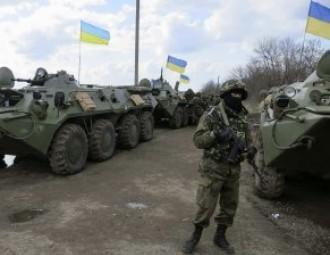First meeting of the contact group on Ukraine took place near Minsk

Ceasefire and release of hostages – these are the main requirements set by the OSCE for the beginning of settling the Ukrainian crisis.
The meeting of trilateral contact group on Ukraine with participation of high-ranking officials from Ukraine, Russia and OSCE took place not far from Minsk on July31. The parties to the meeting were Ukraine's former President Leonid Kuchma, Russia's Ambassador Mikhail Zurabov, representative of the current OSCE President in Ukraine Heidi Tagliavini, and representatives of the self-proclaimed Donetsk People's Republic (DPR). The meeting in Minsk was initiated by Ukrainian President Petro Poroshenko and by invitation of Belarusan President Aliaksandr Lukashenka.
“The participants discussed the situation of hostages and other persons detained in the context of the conflict. As a first step, they committed to the immediate release of a sizable number of persons deprived of freedom. The release of hostages and other illegally detained persons is an important element for securing a mutually agreed and sustainable cease-fire”, is said in the press statement on the OSCE webpage.
The other elements of the truce include the establishment of an OSCE supported monitoring and verification mechanism to become effective simultaneously with the entry into force of the cease-fire, as well as effective control and verification on the border between Ukraine and the Russian Federation. The Contact Group also underlined the urgent need for securing further safe access to international investigators to the crash site until the investigation activities on the spot are completed.
As “EuroBelarus” Information Service has earlier reported, Lukashenka agreed on providing Belarus as a place for negotiations on settling the crisis in Ukraine during the telephone conversation with his counterpart Petro Poroshenko on July 29.
-
03.01
-
07.10
-
22.09
-
17.08
-
12.08
-
30.09








































